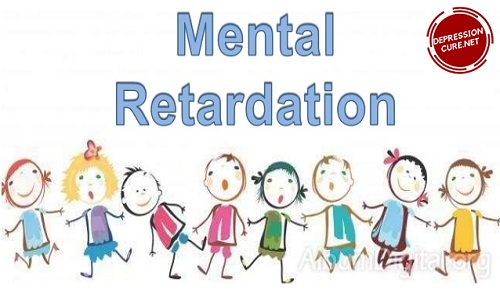What is Mental Retardation?
Mental retardation is a problem that affects the development of anyone. This problem appears during the developmental years i.e., 0 to 18 years of the child. A child struggling with this problem has much lower learning ability and intelligence than other children of his age. Due to this inability, the victims are also unable to function normally.
This problem exists in the victim since birth or from childhood. There are many reasons for this problem, and its effect varies from very low to very high. People who are mentally retarded may have difficulties with many functions, such as –
- Talk with someone
- Take care of yourself
- Daily Life
- Social Skills
- Community contact
- Self-run
- Health & Safety
- School activities
- free time activities
- Do other things etc.
Mental retardation in a child is tested by a psychologist or pediatrician. There is no cure for mental retardation. Mental retardation patients require special care, and doctors meet the same needs to ensure that the patient can learn as much as possible and make the best use of the abilities in them.
Types of mental retardation
What are the types of mental retardation?
There are four main classes of mental retardation. All of these levels are given to the victim based on their performance in a standardized IQ test. Along with this, it is also tested how quickly the victims are able to learn things like talking or social interaction.
-
Mild or extremely low mental retardation –
People with mental retardation who have a maximum IQ level of 55 to 69 are considered to have mild mental retardation. Children with mild mental retardation often do not know the problem until they are well into their school years. They are slower to walk, talk, and eat themselves than most other children.
From fourth to the sixth grade, they learn many practical skills, including reading and mathematics. People with mild mental retardation usually learn the skills of social and job-related tasks and can live on their own without any help.
Click Here to Read: 30 Ways Stress Can Affect On Your Body
-
Moderate mental retardation –
People with moderate mental retardation are those whose IQ ranges from 40 to 54. Children who suffer from mild mental retardation can start their physical muscle functions or speaking etc. very late.
Although these victims are unlikely to acquire useful academic skills, they can learn some health and safety habits, necessary talking, and other everyday skills.
They cannot learn to read and solve mathematics. People with moderate mental retardation usually do not live alone, but they can do some simple tasks and travel alone to familiar places.
-
Severe mental retardation –
People with mental retardation, who have a minimum IQ of 20 to 39, are considered to have severe mental retardation. Their condition is examined at birth or shortly after.
Before the age of going to school, they begin to see the delay in muscle functions and the ability to talk very rarely. With the help of training, they can learn some self-help skills, such as how to eat and bathe themselves.
They usually learn to walk and grow and understand certain things in a fundamental way. By adulthood, people with this severe mental retardation may be able to follow the rules of daily routine and perform some simple tasks. But these adults need to be guided and live in a safe environment.

-
Profound mental retardation –
Among people with mental retardation, there are only a few people whose IQ levels range from 0 to 24, which is considered a profound psychological problem.
Their problem is usually known only at the time of their birth, and there is a need to keep these children in nursing care. Children who suffer from severe mental retardation need to be kept under constant supervision.
These types of children’s show delays in all aspects of their development. With the help of training, these children learn to use their legs, hands, and jaws, etc.
Adults with profound mental retardation learn to talk a little and may even learn to walk a little. People suffering from this type of disorder are unable to take care of themselves and need complete support in their daily life.
Stages of mental retardation
What can be the stages of mental retardation?
There are four main stages of mental retardation:
- Mild
- Medium
- serious
- Deep (very serious)
All of these levels are given to the victim based on their performance in a standardized IQ test. Along with this, it is also tested how soon the victims are able to learn things like talking or social interaction.
Mental Retardation Symptoms
What can be the symptoms of mental retardation?
- Failure to achieve intellectual development.
- Failure to show the signs of development according to your age like crawling, walking, sitting and talking etc.
- Lack of curiosity and difficulty in solving problems.
- Having difficulty remembering things.
- Inability to meet school-related educational demands.
- Being childlike, this behavior is usually displayed by the patient’s way of speaking. Also, not understanding social rules is also a symptom of this.
When should the doctor see?
If you find that your child is delaying walking, speaking, and other muscular activities or learning them, see a doctor.
Click Here To Read: What Causes Depression
Mental Retardation Causes
Why does mental retardation occur?
Prenatal causes (preterm birth)
If either or both of the parents of a child is a victim of mental retardations, the chances of developing this condition in the child are significantly increased.
Sometimes mental retardation also occurs due to some abnormality in chromosomes rather than individual genes. The chromosome has a thread-like structure in the nucleus within the cells, in which the gene is located. Down syndrome is the most common causes of mental retardations, which is caused by extra chromosomes in cells.
- Cerebral malformation
- Microcephaly
- Hydrocephalus
- Nutritional deficiency, such as
- deficiency of Iodine
- Vitamin B9 deficiency
- Severe malnutrition
- Substance abuse, such as
- alcohol
- Nicotine (cigarette and tobacco etc.)
- Cocaine
- Exposure to harmful substances
- Pollutant
- Heavy metals
- Dangerous drugs
- Radiation
- Rh incompatibility
- Pregnancy pregnancy
- High BP in pregnancy
- Excessive bleeding during childbirth
- Placental dysfunction
- During delivery
- Feeling difficulty or complication in delivery
- Born too early
- Being deficient birth weight
- Asphyxia from birth (asphyxia)
- Stroke during birth
- Maternal infection
- Rubella
- Toxoplasmosis
- Cytomegalovirus infection
- Syphilis
- HIV
- Maternal disease
- Diabetes
- Cardiovascular disease
- Kidney disease
- Newborn period:
- Septicemia
- jaundice
- Hypoglycemia
- Neonatal convulsions
- Infancy and childhood
- Brain infections such as
- TB
- Japanese encephalitis
- bacterial meningitis
- Head trauma
- Long-term exposure to lead
- Chronic malnutrition
- Obstruction of oxygen supply in the brain, etc.
- Chromosomal disorder –
- Down syndrome
- Kleinfelter’s syndrome
- Singer gene disorder – congenital errors like metabolism
- Galactosemia
- Phenylketonuria

Prevention of mental retardation
How can mental retardation be prevented?
Vaccination against certain diseases, such as measles and hepatitis B, etc. This vaccination prevents many conditions that can develop mental retardation.
Apart from this, there should be regular physical and mental developmental checkups under the pediatric care of all children. The investigation is especially important for children who are ignored or who are malnourished. Or for children who live in conditions where there is a possibility of spreading the disease.
Examination of the newborn for phenylketonuria (PKU) and hyperthyroidism and immediate treatment if these problems are found is critical. These illnesses soon lead to disorders such as mental retardation’s, so treating these problems may be the first step to prevent mental retardation.
Good birth care can also help prevent mental retardation. Pregnant women should be educated about the risks of drinking alcohol etc. and the need to keep taking proper nutrition during pregnancy.
Certain types of tests, such as amniocentesis and ultrasonography, can determine whether the fetus is developing typically in the womb.
Click Here To Read: 75 Depression Quotes
Diagnosis of mental retardation
How is mental retardation tested?
If a problem of mental retardation is suspected, a comprehensive physical examination is performed to find the biological cause of its symptoms, and the patient’s previous medical information is obtained. Biological causes, such as hyperthyroidism (PKU), can be treated.
These metabolic disorders and other biological problems associated with the brain are tested with the following tests:?
- Imaging test to see issues related to the brain
- EEG to look for evidence or signs of seizures etc.
- Blood test
- Urine test
If this condition is detected in the beginning, then the state of developing mental retardation can be stopped. In some cases, it can also be partially reversed. If a neurological (neurological) cause is suspected, the child is referred to a neurologist or neuropsychologist for testing.
The patient’s complete previous medical, family, social, and educational information is gathered from existing records and by interaction with parents.
Some of their intellectual tests can also be done to measure children’s learning abilities and rational functions.
For infants, the Bayley Scales used for infant development is used to examine infants’ muscle function, language, and problem-solving skills.
Talking with parents or other caregivers helps to explore a child’s daily life, muscle control, speaking, and other social skills.
Mental Retardation Treatment
How can intellectual disability be treated?
The treatment of the mental disorder is not to cure this disease because there is no cure for it. The main goals of this therapy are to reduce security risks (helping a person to maintain security at home and school, etc.) and to teach appropriate and qualified life skills.
In this case, patient-related solutions are based on their needs and their family background. The absolute goal of treatment in this disease is to develop the patient’s potential fully.
Click Here to Read:- 60 Interesting Depression Facts
The following steps can be followed to help an intellectually disabled child –
Try to learn the things as much as you can about mental retardations (intellectual disability). The more information you get about it, the better you will be able to help your child.
Involve your child in group activities. Send him to art class or take part in sports, because such activities develop social skills in the child.
Encourage your child to become independent. Try to have your child learn new things and try to do them himself. Give guidance to the child only when needed, and if he does something good or learns something new, then give good positive feedback on it.
Meet and interact with the parents of any other child with mental retardations; they can be a great source of advice & emotional support for you.
Keep in touch with your child’s teacher and be involved in the child’s activities. By this behavior, you will be able to keep track of the progress of the mental state of the child. Whatever the child learns in school, have it practiced at home so that the child can learn well.
Note: Depression Cure does not provide any type of medical advice, diagnosis, or treatment.
Meditation for Stress: Quick 5-Minute Meditation for Effective Stress Relief





